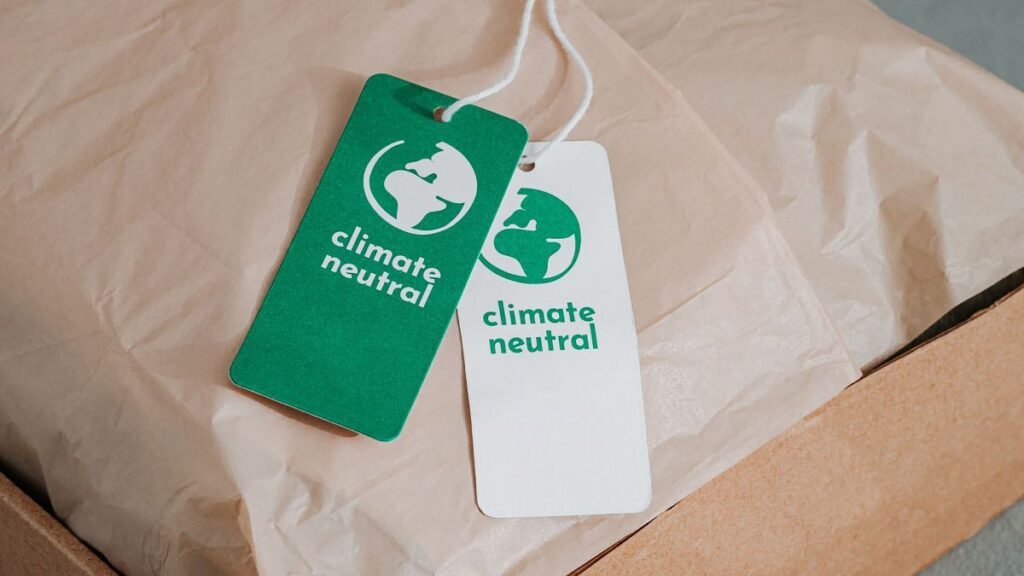British authorities have the power to fine a company one-tenth of its global turnover if greenwashing is proven. And a recent report found that almost half of Britain's large businesses are at risk.
In the UK, four out of 10 large companies will face hefty fines for greenwashing in 2024 as major toughening of consumer protection laws by the Competition and Markets Authority (CMA) and the EU come into effect. .
Companies are still failing to mitigate real risks, according to new sustainability analysis from communications platform Compare Ethics. This includes a rapidly changing environment where companies need to thoroughly verify all sustainability claims.
With regulations changing across the UK and the EU, “it's no longer as simple as a checkbox from regulatory compliance practices,” said Abbey Morris, CEO of Compare Ethics.
A monitoring agency is cracking down on those who violate the rules.
In 2020, various consumer protection agencies came together around the world to conduct an independent investigation. They found that 40% of international companies made misleading environmental claims.
In the UK, companies such as Nestlé, Coca-Cola and Boohoo came to the attention of the Competition and Markets Authority (CMA) last year. Underscoring its determination to crack down on wrongdoers, the CMA has committed £1.3m (€1.52m) to investigate greenwashing between September 2021 and January 2024, Financial News reported. An estimated 29,471 working hours were spent.
Some of their findings highlight companies' use of ambiguous language.
The CMA also found that the language used by Asos, Boohoo and George was “broad and vague” and suggested some of the clothing was more sustainably manufactured than it actually was.
Such environmentally friendly claims need to be thoroughly proven. Failure to do so could subject companies to hefty fines. The CMA has the power to fine companies up to 10% of their global turnover.
However, imposing fines will require court proceedings over the coming months until the next Digital Markets, Competition and Consumers Bill comes into force. This will allow the CMA to directly enforce penalties.
The end of the greenwashing era
Greenwashing may be unintentional. In the UK, the regulatory environment is changing rapidly, the term lacks a legal definition, and businesses will need to adapt to a number of changes over the next two to three years.
The EU recently banned greenwashing through the Directive Empowering Consumers for the Green Transition. The upcoming Green Claims Directive will require that green claims in the European market be verified by an independent third party.
With the EU Green Claims Directive due to be introduced in April, UK retailers looking to export overseas will have to contend with more than 70 new regulations internationally over the next 12 to 36 months.
Otherwise, around 1.6 million British goods could be stranded at the border.
EU member states have also just voted in favor of the Corporate Sustainability Due Diligence Directive (CSDDD), which will hold companies accountable for environmental and human rights damage in their value chains.
This means that certain companies (with a turnover of over 450 million euros) that wish to label their products as sustainably made must ensure that their suppliers are in fact properly produced, even if they are based in Bangladesh. This means that it is necessary to confirm that it is operating under suitable conditions. Please work there.
Meanwhile, the real risks this changing regulatory minefield poses to businesses are currently being ignored by executives, CEOs claim.
“It's no longer as simple as checking a box for regulatory compliance,” Morris said. “Currently, all environmental claims need to be checked before they are published. But the reality is that this is not the case.”
What are the risks to companies?
Compare Ethics expects the number of fines to increase over the next 12 to 18 months.
“Not only are regulators holding companies accountable, but investors themselves have their own regulatory pressures to respond to, so if you're not taking it seriously, investors are actively “You're starting to see that people are going to sue your business,” the CEO warned, adding that European consumer protection agencies and law firms are also on the rise, suing businesses to European consumer protection authorities. He added that there is.
The problem, according to Compare Ethics' analysis, is that many large companies lack investment in such thorough procedures. If you choose to perform all green claims verification manually, the investment required for the average company will be between £500,000 and £1 million (€1.17 million) per year. The technology costs between £2m and £4m to build and between £1m and £2m to maintain the system.
The CEO said it could take months, if not years, to collect the appropriate data, build the necessary verification systems and report to the relevant regulatory authorities, and many It added that UK businesses have been at risk of having their products stranded at the border since April this year unless they urgently examine their entire product supply chain.


